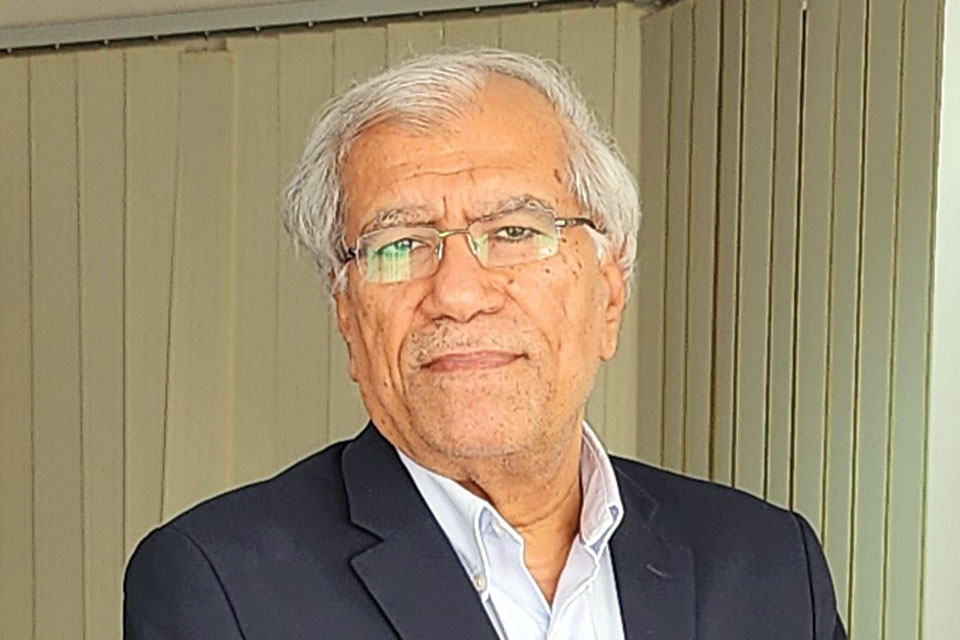Trump’s ‘chaos’ style got us this far; Netanyahu walking political tightrope
October 22, 2025

Yehudah Mirsky
Yehudah Mirsky, a professor in Near Eastern and Judaic Studies and the Schusterman Center for Israel Studies at Brandeis and former U.S. State Department official, is currently based in Israel. He said the ceasefire and the return of surviving hostages — along with, he hopes, the bodies of hostages who were killed — has lifted spirits in the small, tight-knit country, where almost everyone has a personal connection with those killed on Oct. 7 or in the course of the war.
“People are finally happy, for the first time in a long time,” Mirsky said, “even as they are wary and exhausted.”
Israel relies on a citizen army and prolonged reserve duty which has been a drain on home life, education, society and the economy. There is now at least the possibility that life will begin to heal, Mirsky said, and people will begin to reckon with the physical, moral and other costs of the war. “It is hard to exaggerate the waves of emotion coursing through society at seeing the living hostages back home,” Mirsky said.
However, the landmark agreement that brought Israel and Hamas to the current moment is very much a first step.
“Returning the hostages is not the sufficient condition for Israeli society to move forward, but it’s the necessary condition,” Mirsky said. “So long as the hostages are being held, everything is stuck. Nothing moves. Hamas dragging its feet on the return of slain hostages is a painful reminder of the agreement’s incompleteness.”
Underlying domestic political issues in Israel that predated the Oct. 7 attacks are already impacting future steps. Mirsky said the political calculus of Israeli Prime Minister Benjamin Netanyahu and his far-right governing coalition, some of whose key members opposed the agreement, could complicate future negotiations.
There is widespread consensus in Israel that Netanyahu prolonged the war for political reasons. He has been harshly criticized by most hostage families, security professionals and others for his handling of the conflict and his staunch refusal to accept any responsibility publicly for his role in indirectly bringing about Oct. 7, according to Mirsky. Further complicating matters, the stated aims of leading members of Netanyahu’s coalition — including resettling Gaza with Jews and unilaterally extending Israeli sovereignty to the West Bank — are at odds with what has been laid out for future phases of the current agreement, Mirsky said.
“He’s going to have to make some hard choices, and that entails making choices which will disappoint and enrage members of his governing coalition,” Mirsky said. “At the same time, he has now revived his same proposals to dramatically overhaul the judiciary, which rocked Israeli society to the core in the half year before Oct. 7, undercutting the solidarity which saw Israel through the war.”
What makes this agreement different? Mirsky said President Donald Trump’s fondness for freewheeling deal-making, along with his chaotic, unpredictable style and willingness to engage with parties that the U.S. long held at arm’s length, provided the right conditions for the success of the first phase. Trump’s upending of the rules-based international order is creating new alliances and new spheres of influence. He doesn’t mind working with dictatorships, and has blurred the lines between his personal business and his role as U.S. president, he added.
“Once America doesn’t see itself as constrained by the rules-based order, then all kinds of things are possible, but in multiple directions,” Mirsky said. “It’s a highly personalized style of diplomacy.” He added: “As an educator, seeing a leader like Trump accomplishing something good precisely through what we usually perceive as his faults, is a moral challenge all its own.”
Reducing the ambiguity that surrounds many key details of the plan will be the key to determining whether it is sustainable, Mirsky explained, adding that Hamas will try to rearm, likely with Iran’s help. “Turkey, Qatar and Egypt are now important players in how this plan moves forward — which is especially striking when we realize that Qatar has long backed Hamas and worked to undermine U.S. standing in the region, and that Erdogan’s Turkey is an illiberal power with large ambitions,” Mirsky explained.
He said also it remains to be seen whether Israeli and Palestinian leadership — whatever form it takes — will be able to address intractable issues that have long bedeviled them, including the Palestinian Authority’s corruption and weak public standing. But there is now at least a possibility that some of those questions can be dealt with.
“The one thing we can know is that there’s a seed here,” Mirsky said. “There’s an opportunity here to actually try and make things better on the ground, in a concrete way, for people living through this. Which, notwithstanding all the furies — rhetorical and more — unleashed by this war, and not going away, is what truly matters.”


